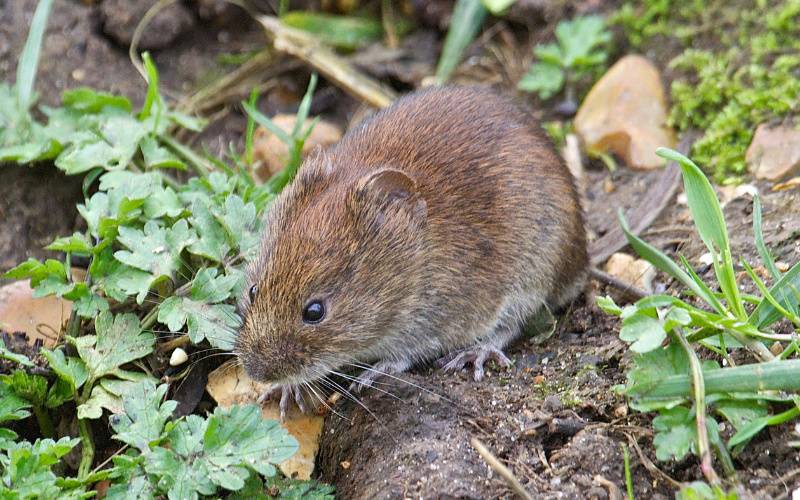Vole Grass Damage Solutions: Effective Control Techniques
Vole Grass Damage Solutions: Effective Control Techniques
Blog Article
Vole Bug Control Demystified: A Total Summary of Invasion Detection and Effective Treatment Techniques
From subtle signs of infestation to the application of targeted control steps, browsing the world of vole bug control demands a blend of knowledge and calculated action. In this thorough summary, we will certainly discover the subtleties of vole problem detection and dive into the realm of efficient treatment approaches that can guard your spaces from these below ground problems.
Recognizing Vole Actions Patterns
Understanding the complex habits patterns of voles is crucial for effectively carrying out bug control steps in agricultural and property setups. Voles, tiny rats that resemble computer mice yet with stouter bodies, are infamous for their rapid reproduction prices and ravenous appetites for greenery. By delving right into their actions patterns, bug control professionals can obtain valuable understandings right into vole vulnerabilities, preferences, and behaviors.
Voles are mainly herbivores, eating a large range of plants, roots, bulbs, and roots. They are additionally respected tunnelers, producing fancy underground burrow systems for nesting and foraging. By understanding these behaviors, insect control specialists can strategically position catches and bait stations along vole runways and access factors, boosting the chance of effective eradication.
Furthermore, expertise of vole behavior patterns can aid in creating preventive procedures to deter future invasions. By attending to elements that attract voles, such as dense plants cover and easily available food sources, homeowner can make their premises much less inviting to these devastating bugs - vole lawn damage. In verdict, a thorough understanding of vole behavior is vital in devising sustainable and reliable pest control approaches
Identifying Signs of Vole Infestation
Efficient vole pest control begins with immediately identifying the indications of vole invasion on residential properties. One of the most usual indicators of vole existence is the existence of surface area paths. These paths are narrow paths via yard or vegetation that voles develop as they take a trip between their burrows and food sources. Furthermore, vole droppings are one more clear sign of problem. Vole droppings are small, round pellets that are frequently found along their paths or near their burrows.
Along with droppings and paths, nibble marks on tree bark and plants are likewise indications of vole task. Voles have a behavior of gnawing on the bases of trees and shrubs, which can cause damages and potentially kill the plants. In addition, the visibility of burrow openings in the ground indicates an active vole population. Vole burrow entries are typically small and found in mulched or verdant locations.
Being attentive for these indications can help homeowner discover vole problems early and take appropriate insect control actions to stop further damages.
Executing Targeted Control Actions
What specific approaches can be used to effectively apply targeted control steps for vole pest administration on buildings? Executing targeted control measures for vole parasite administration calls for a multi-faceted technique that integrates both prevention and eradication approaches. Among the key methods is habitat modification, which entails removing vole-friendly settings such as tall grass, weeds, and debris near buildings. Installing barriers like equipment towel or crushed rock around garden beds and tree trunks can likewise assist prevent voles.
Trapping is another reliable technique for regulating vole populations. Live traps can be tactically placed along vole runways or delve entries, baited with peanut butter or apple pieces. As soon as captured, voles ought to be humanely gotten rid of to a different place to stop reinfestation.
Rodenticides can be used as a last hotel for severe infestations, but care must be exercised to stop injury to non-target pets. It is important to adhere to all safety and security guidelines and policies when making use of rodenticides for vole control.
All-natural and Environmentally Friendly Remedies
The adoption of environmentally conscious techniques can play a pivotal duty in handling vole populaces without causing harm to the ecological community. Natural and environment-friendly treatments supply a lasting method to vole parasite control, minimizing the usage of damaging chemicals and advertising biodiversity in the impacted locations.
One reliable natural method is the usage of predator urine or killer decoys. Killers like foxes, owls, and snakes are the vole's all-natural enemies. By tactically positioning predator urine or decoys around the plagued areas, voles might be discouraged from resolving in those areas.
Additionally, planting vole-resistant plant life can assist in reducing vole damage. Plants such as daffodils, crown imperials, and Siberian squill are recognized to be uninviting to voles and can act as natural repellents.
Additionally, producing physical barriers like cord mesh or crushed rock around prone plants can stop voles from accessing them. These obstacles can help safeguard gardens and landscapes without posing any hazard to the environment or various other non-target types. By including these all-natural and green remedies, vole infestations can be taken care of properly while maintaining eco-friendly balance.
Long-Term Avoidance Approaches
To sustainably resolve vole invasions over time, executing proactive steps is important for lasting prevention methods. By reducing thick greenery, compost, and clutter around structures, you can make your home our website less attractive to voles.
Routine surveillance of look at this website vole task is necessary for very early discovery of any kind of signs of invasion. Establishing vole traps can assist in controlling their populace before it ends up being a full-blown invasion. It is likewise essential to seal any kind of entry points to structures or structures to stop voles from obtaining accessibility.

Conclusion
Finally, understanding vole habits patterns, recognizing signs of infestation, carrying out targeted control measures, utilizing natural and environmentally friendly treatments, and applying long-term prevention methods are important action in successfully managing vole infestations. By being positive and taking the required actions to resolve vole problems without delay, individuals can effectively control and avoid vole infestations in their buildings.

Report this page